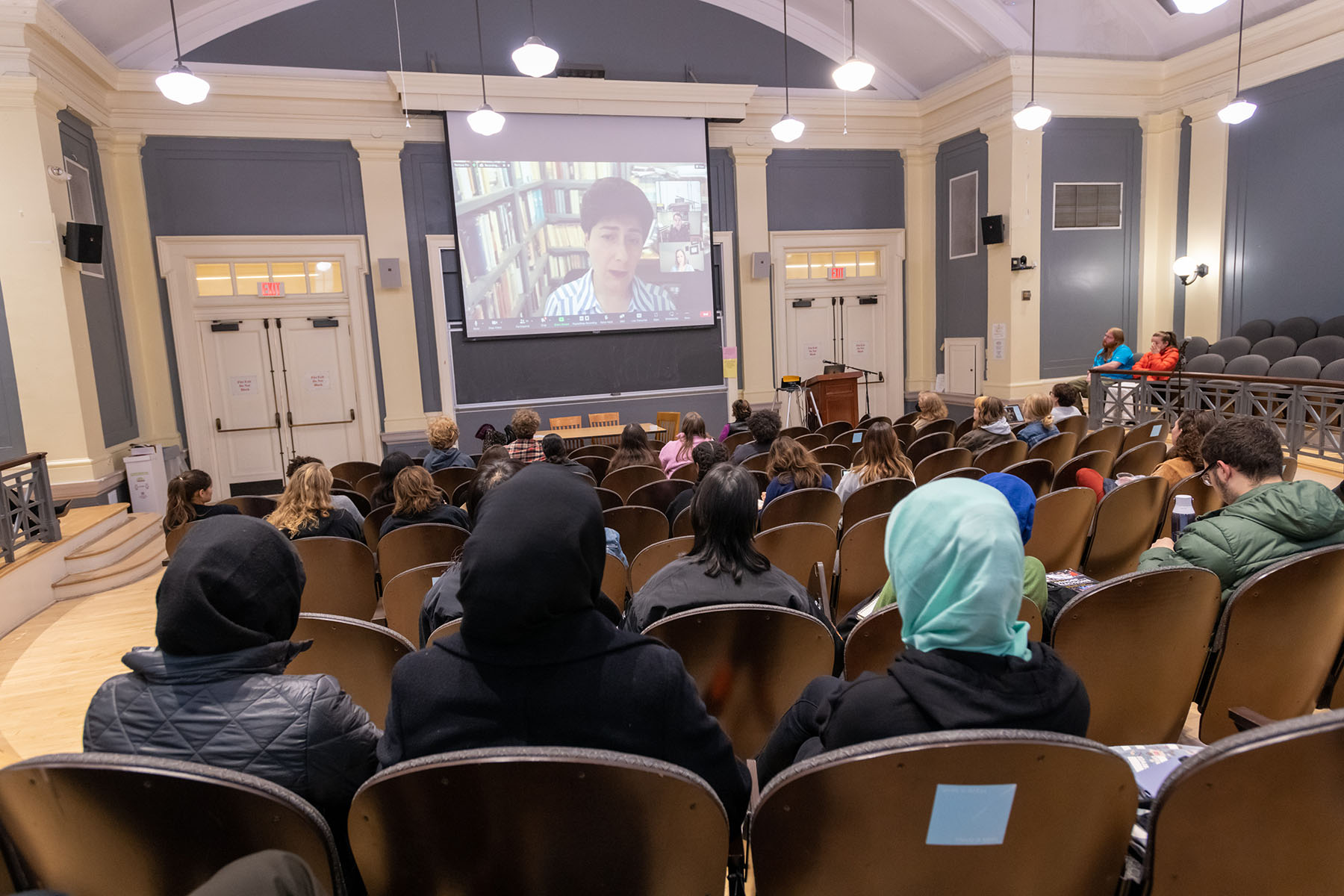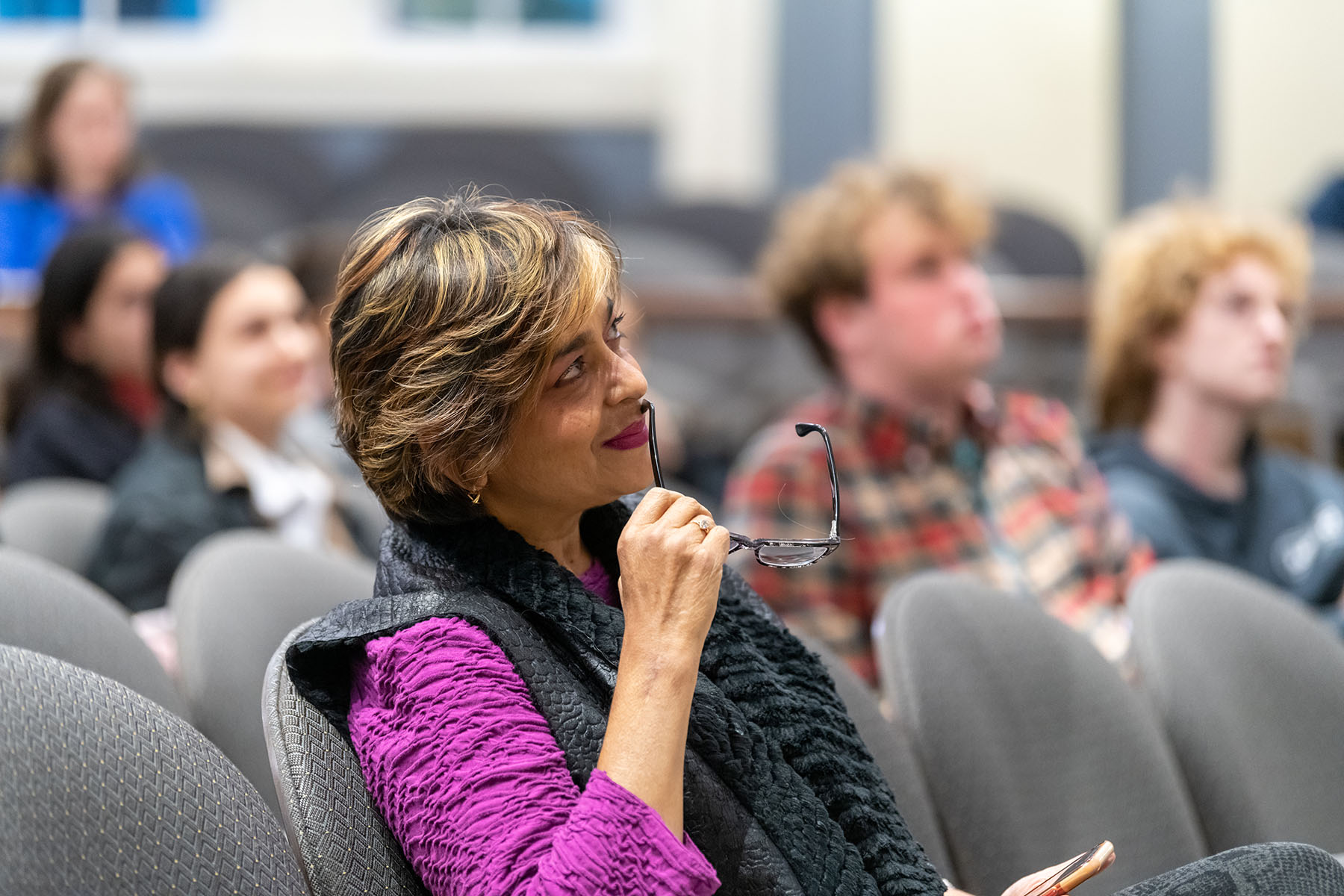Women’s Rights in Iran: Vassar Panel Examines the Way Forward
The widespread protests in Iran sparked by the September 16 death of a 22-year-old woman at the hands of the country’s morality police are the latest in a series of public outcries against the repression of women since the country’s 1979 revolution. But the tone and intensity of the current unrest may ultimately lead to significant changes in Iranian social policies and politics.

That was the consensus of three scholars who took part in a panel discussion hosted by two Vassar faculty members October 3 in Rockefeller Hall. “These protests are different from the ones that came before,” said Kelly Shannon ’03, Associate Professor of History and the Chastain-Johnson Middle Eastern Studies Distinguished Professor in Peace Studies at Florida Atlantic University. “They are being led by women, but many men have joined them and that has not been the case previously,” she said. “And they are calling for regime change this time, not simply reform.”
The victim, Mahsa Amini, was arrested for failing to wear a hijab head covering in violation of the country’s strict rules on women’s dress. Shannon compared the eruption of unrest in Iran to the reaction across the United States after George Floyd was murdered by police in Minneapolis in March 2020. “As was the case with George Floyd, a confluence of events that led to a young woman not wearing a scarf and ending up dead became the spark that ignited a tinder box that had been growing for years,” she said.
Shannon was joined on the panel by Fatemeh Sadeghi, Visiting Digital Scholar in Vassar’s Consortium on Forced Migration, Displacement, and Education and a research associate at University College London’s Institute for Global Prosperity, and Kirsten Wesselhoeft, Vassar Assistant Professor of Religion and Director of the Consortium on Forced Migration, Displacement, and Education. The panel was moderated by Paulina Bren, Adjunct Professor of Multidisciplinary Studies and Director of Women, Feminist, and Queer Studies on the Pittsburgh Chair in the Humanities, and Mita Choudhury, Professor and Chair of History on the Evalyn Clark Chair.

Sadeghi noted that the rule requiring women to wear a hajib in public, imposed following the Islamic revolution in 1979, “was, from the beginning, an instrument of oppression. I am not against the wearing of the hajib, but it should not be compulsory.”
Professor Wesselhoeft called the latest wave of protests “a crescendo of movements of the recent past that draws its power from the intensification of the oppressive state.”
Asked to assess what would happen in the near future in Iran, Wesselhoeft replied, “Where this is going is hard to say. There is a clear appetite for more democracy, human rights and freedom, but there is no centralized coalition, no manifesto that accounts for a clear political vision.”